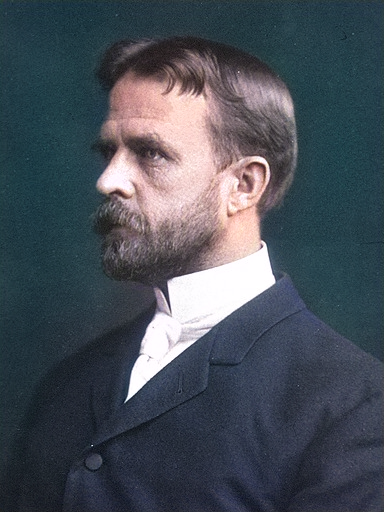Date of Birth: September 25, 1866
Zodiac Sign: Libra
Date of Death: December 4, 1945
Biography
Thomas Hunt Morgan was an influential American geneticist and evolutionary biologist, best known for his groundbreaking work in the field of heredity. He was born on September 25, 1866, in Lexington, Kentucky, into a well-established family with a history of academic and public service. Morgan attended the State College of Kentucky (now the University of Kentucky), where he earned a Bachelor of Science degree in 1886. He then pursued a Ph.D. at Johns Hopkins University, which he received in 1890. Morgan’s early research focused on embryology, but his interests eventually shifted to genetics. He is most famous for his experiments with the fruit fly, Drosophila melanogaster, which provided the first definitive evidence that genes are located on chromosomes. His work laid the foundation for modern genetics and earned him the Nobel Prize in Physiology or Medicine in 1933. Morgan’s research demonstrated how genetic traits are inherited and revealed the chromosomal basis of heredity, which revolutionized our understanding of biology. Morgan was also a prolific writer and educator, authoring several influential books and mentoring many students who would go on to become notable scientists themselves. He spent the majority of his academic career at Columbia University and later at the California Institute of Technology, where he continued his research and teaching until his retirement.
5 Interesting Facts about Thomas Hunt Morgan
1. Thomas Hunt Morgan won the Nobel Prize in Physiology or Medicine in 1933 for his discoveries concerning the role chromosomes play in heredity.
2. He initially doubted the chromosomal theory of inheritance but later became one of its most ardent supporters after his groundbreaking experiments with fruit flies.
3. Morgan’s work with Drosophila melanogaster led to the discovery of sex-linked traits and the concept of genetic linkage.
4. He was the first American scientist to receive the Nobel Prize in the field of genetics.
5. Morgan established the famous “Fly Room” at Columbia University, which became a center for genetic research and produced many future Nobel laureates.
5 Most Interesting Quotes from Thomas Hunt Morgan
1. “The more we learn about the nature of heredity, the more we realize that the complexity of life cannot be reduced to a simple mechanistic explanation.”
2. “Genes are the fundamental units of heredity, and understanding them is key to unlocking the mysteries of life.”
3. “Science is not about accumulating facts; it is about understanding the underlying principles that govern the natural world.”
4. “The fruit fly has taught us much about the intricacies of genetics, and its lessons continue to shape our understanding of biology.”
5. “In the study of heredity, one must be prepared to change one’s views in the face of new evidence, for science is ever-evolving.”
Highest Net Worth Achieved
Thomas Hunt Morgan did not amass significant personal wealth from his scientific endeavors. His primary focus was on his research and academic contributions rather than financial gain. However, his work has had an immeasurable impact on the field of genetics, which has led to advancements worth billions of dollars in biotechnology and medicine.
Children
Thomas Hunt Morgan had four children with his wife, Lillian Vaughan Sampson. Their names were Edith Sampson Morgan, Isabel Morgan, Howard Key Morgan, and Lilian Vaughan Morgan. Isabel Morgan became a notable virologist and contributed to the development of a polio vaccine.
Relevant Links
1. [Nobel Prize Biography](https://www.nobelprize.org/prizes/medicine/1933/morgan/biographical/
2. [National Library of Medicine Biography](https://www.ncbi.nlm.nih.gov/pmc/articles/PMC319621/
5. [American Philosophical Society Biography](https://www.amphilsoc.org/memhist/morgan-thomas-hunt

